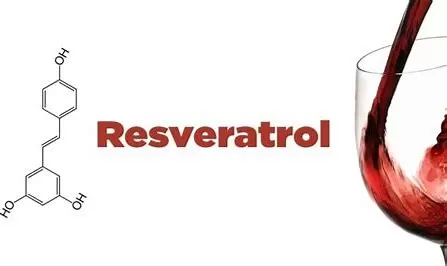- 0086-571-85302990
- sales@greenskybio.com
The Side Effects of Resveratrol: What You Need to Know
2025-03-24
Resveratrol is a natural compound that has garnered significant attention for its potential health benefits, including antioxidant properties and its role in promoting cardiovascular health. Found abundantly in red grapes, blueberries, and peanuts, resveratrol is often associated with the positive effects of red wine consumption. As interest in its medicinal properties grows, resveratrol supplements have become popular among health enthusiasts seeking to leverage its benefits. However, it is crucial to understand that resveratrol, like any other supplement, may come with side effects and considerations for safe use. This article aims to provide a comprehensive overview of resveratrol side effects, highlighting important aspects that consumers should be aware of.
Understanding Resveratrol
Resveratrol, a type of polyphenol, acts as an antioxidant, mitigating oxidative stress by neutralizing free radicals that can damage cells. This property also contributes to its anti-inflammatory effects, making resveratrol a valuable compound in preventing certain chronic conditions. Furthermore, resveratrol has been studied for its potential role in longevity, cancer prevention, and metabolic health, indicating that its benefits could be broad-ranging.
Potential Side Effects of Resveratrol
Gastrointestinal Upset
One of the most common side effects reported by individuals who ingest resveratrol supplements is gastrointestinal discomfort. Symptoms may include nausea, diarrhea, flatulence, and abdominal pain. These reactions are usually mild but can be uncomfortable and inconvenient, particularly at higher doses.
Interaction with Anticoagulant Medication
Resveratrol may have blood-thinning properties, similar to aspirin. For individuals on anticoagulant medications, such as warfarin, or those with bleeding disorders, resveratrol could enhance the risk of bleeding or bruising. It is advisable for these individuals to consult with a healthcare professional before starting resveratrol supplementation to avoid adverse interactions.
Hormonal Effects
Resveratrol exhibits weak estrogenic activity, which can mimic or interact with the body's hormones. This effect may be of concern to individuals with hormone-sensitive conditions, including estrogen-receptor-positive breast cancer. Although resveratrol does not produce significant hormonal changes, people with concerns about estrogenic effects should approach its use cautiously.
Potential Liver Impact
There are limited studies indicating that very high doses of resveratrol could impact liver function adversely. Such effects may manifest as elevated liver enzymes, particularly in individuals with pre-existing liver conditions or those consuming excessive alcohol. Monitoring liver function is crucial when taking resveratrol in substantial amounts over extended periods.
Allergic Reactions
Though rare, some individuals may experience allergic reactions to resveratrol, characterized by symptoms such as itching, rashes, and swelling. Severe allergic reactions, including anaphylaxis, are possible but uncommon. It is essential to discontinue use and seek medical advice if any allergic symptoms arise.
Kidney Function Concerns
Research is limited, but there are concerns that high doses of resveratrol could impact kidney function. Individuals with existing kidney issues should consult healthcare providers before using resveratrol to ensure it does not exacerbate their condition.
Potential Interference with Certain Cancer Therapies
While resveratrol's antioxidant properties are beneficial, there is concern that it might interfere with certain cancer therapies that rely on oxidative mechanisms to target cancer cells. This potential interference underscores the need for patients undergoing cancer treatment to seek advice from their oncologist before incorporating resveratrol into their regimen.
Considerations for Safe Use
To optimize the benefits of resveratrol while minimizing the risk of side effects, consider the following guidelines:
Dosage Control: Adhering to recommended dosages is critical. Resveratrol capsules typically range from 100 mg to 500 mg, but higher doses should be approached with caution.
Consultation: Individuals taking medications or managing chronic health conditions should consult a healthcare provider before starting resveratrol supplements to discuss potential interactions and safe administration.
Monitoring: Regular monitoring of liver and kidney function is advisable for individuals taking high doses of resveratrol or those vulnerable to organ-specific impacts.
Personal Health Assessment: Consider individual health history, particularly regarding hormonal conditions, liver or kidney disease, and bleeding disorders, to tailor resveratrol use appropriately.
Conclusion
Resveratrol is a potent compound with significant health-promoting properties, yet, like all supplements, it is not without its potential side effects. By understanding the possible adverse effects and considering individual health circumstances, consumers can make informed decisions about resveratrol use. As research continues to uncover the depths of resveratrol's impact, individuals are encouraged to approach supplementation responsibly and under guidance from healthcare professionals, ensuring that its inclusion benefits their wellness journey without compromising safety. This balanced approach to resveratrol consumption promotes its healthy integration into daily life, enhancing overall health outcomes while mitigating risks.
- ▶ Hesperidin
- ▶ citrus bioflavonoids
- ▶ plant extract
- ▶ lycopene
- ▶ Diosmin
- ▶ Grape seed extract
- ▶ Sea buckthorn Juice Powder
- ▶ Beetroot powder
- ▶ Hops Extract
- ▶ Artichoke Extract
- ▶ Reishi mushroom extract
- ▶ Astaxanthin
- ▶ Green Tea Extract
- ▶ Curcumin Extract
- ▶ Horse Chestnut Extract
- ▶ Other Problems
- ▶ Boswellia Serrata Extract
- ▶ Resveratrol Extract
- ▶ Marigold Extract
- ▶ Grape Leaf Extract
- ▶ blog3
- ▶ blog4
- ▶ blog5
-
What fruit is highest in resveratrol?
2025-03-24
-
Is resveratrol safe for kidneys?
2025-03-24
-
Is It Okay to Take Resveratrol Every Day?
2025-03-24
-
What is resveratrol used for in skin?
2025-03-24
-
What Are the Sources of Resveratrol?
2025-03-24
-
What Is Resveratrol Extract Good For?
2025-03-24
-
Resveratrol extract
2025-03-24
-
Maca Extract
2025-03-24
-
Lycopene
2025-03-24
-
Oat Straw Extract Powder
2025-03-24
-
Motherwort Extract
2025-03-24
-
Pine bark Extract Powder
2025-03-24
-
Cranberry Extract
2025-03-24
-
Green coffee bean Extract
2025-03-24
-
Fenugreek Extract Powder
2025-03-24
-
Phellodendron Extract
2025-03-24

























